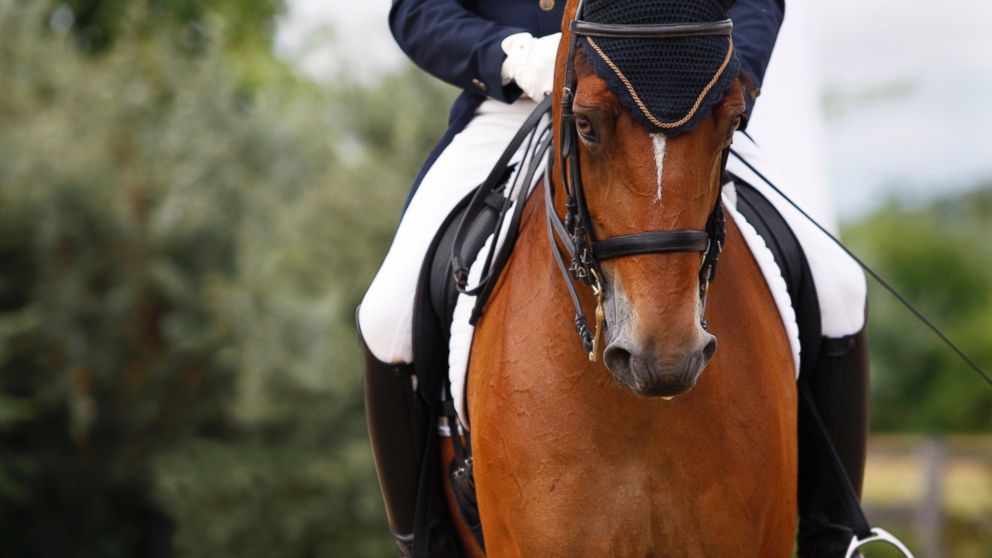Horse Riding Is Leading Cause of Sport-Related Traumatic Brain Injuries, Study Finds
Rates of traumatic brain injuries were high for equestrians, study finds.

— -- Sports-related head injuries are increasingly gaining attention as researchers investigate long-term consequences of multiple concussions. Concerns about the neurodegenerative disease known as chronic traumatic encephalopathy, or CTE, has put a focus on contact sports such as football and soccer.
However, a study released today by the journal Neurological Focus found that the sport that causes most traumatic brain injuries isn't even a contact sport, it's horseback riding. Looking at data from the National Trauma Databank between 2003 and 2012, the researchers found that equestrian sports contributed to the highest percentage of traumatic brain injuries (TBI) for adults.
In the database, 45.2 percent of TBI among adults were related to horseback riding, dwarfing the other causes. The second-leading cause of sports-related traumatic brain injury was falls or hits from contact sports like football and soccer, but that accounted for just 20.2 percent of TBIs.
The researchers pointed out that while other sports get more attention for head injuries, those taking part in equestrian sports have been found again and again to be at high risk for dangerous head injuries.
"This finding is consistent with those in previous reports indicating greater rates of severe traumatic injury in equestrian and related sports than in other sports including football, rugby, and skiing," research authors said in a study. "One report found that, when normalized for hours of activity, horseback riding results in a higher rate of hospital admission than other high-risk activities such as motorcycle riding."
A second study on children and adolescents found that falls or hits during a contact sport were the leading cause of traumatic brain injuries and that equestrian sports were the third-leading cause of TBIs. Researchers examined data from the National Sample Program of the National Trauma Data Bank and found there were 1,444 incidents of TBI from falling or getting hit in contact sports, 806 TBIs from skateboarding or from rollerskates and 427 TBIs related to an accident during related to an equestrian sport.
Dr. Ciro Ramos Estebanez, a neuro critical care specialist at University Hospitals Case Medical Center, pointed out that not all traumatic brain injuries are alike and that for equestrian injuries, he would expect more severe injuries but less chance of repetitive injuries.
"I would be more afraid about one single fall that would start a fracture ... or bleeding in brain," said Estebanez, who was not involved in the above study. "I don’t think a bunch of falls," is likely.
Estebanez said the increased scrutiny on football and contact sports for concussions usually focuses on the long-term effects of repeated head injuries.
Even for equestrians, he said one brain injury can mean permanent damage that affects their reflexes and attention, making safe riding difficult.
"Once you have the impact you’re going to develop post-concussive symptoms," said Estebanez, explaining symptoms like migraines, trouble concentrating, headaches and irritability can occur.




